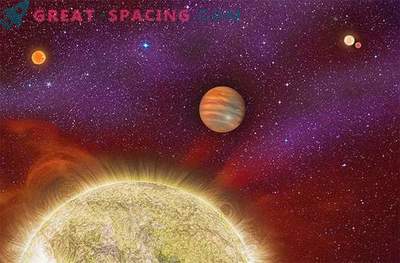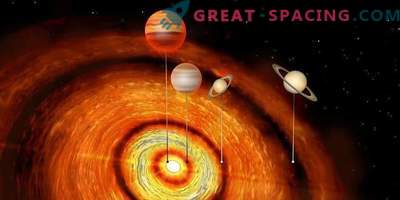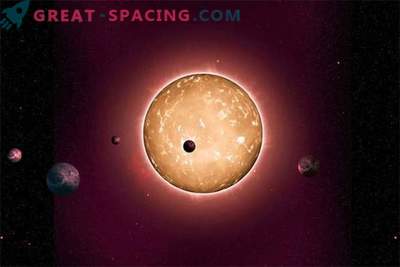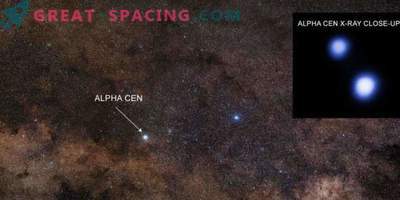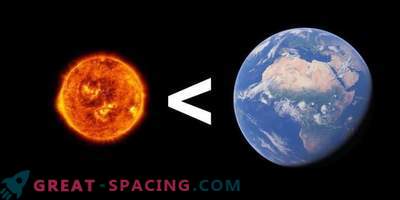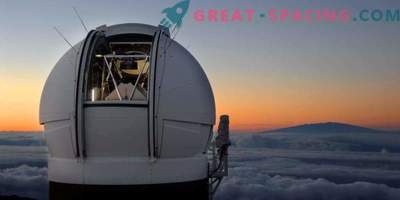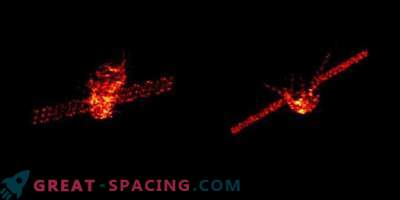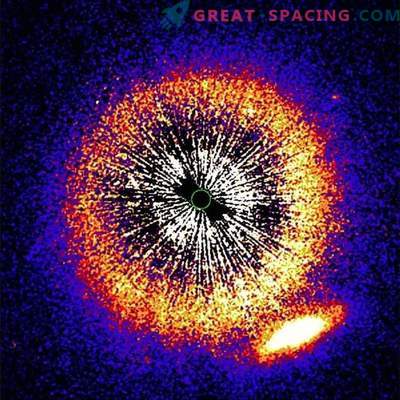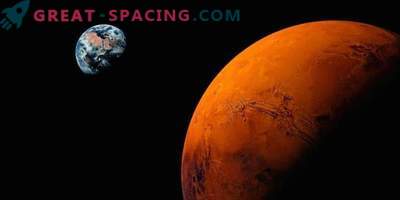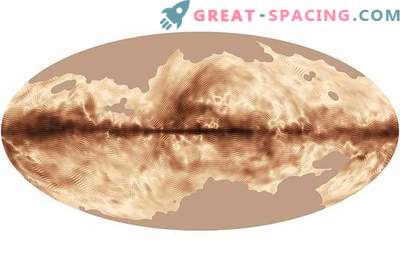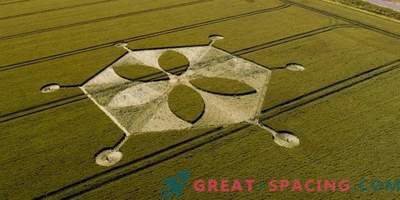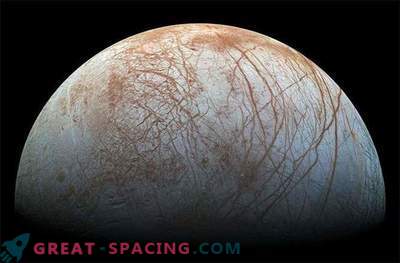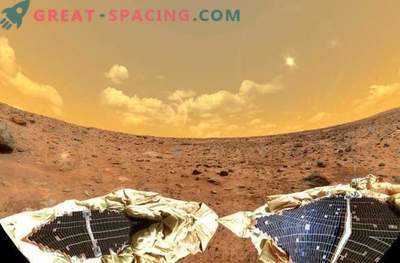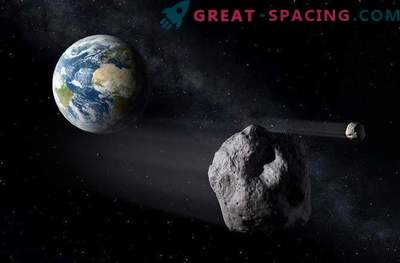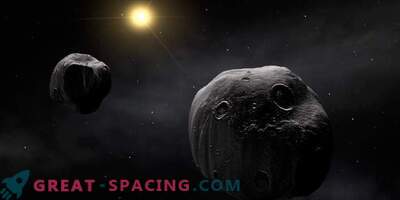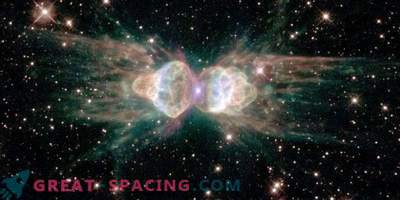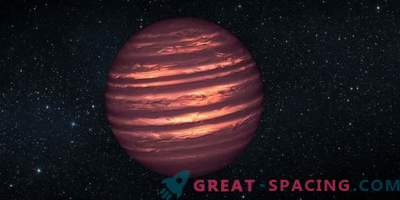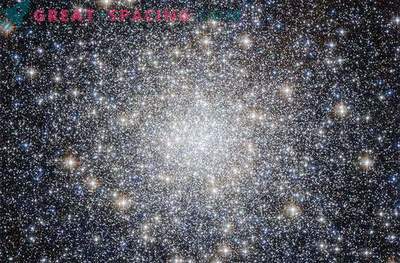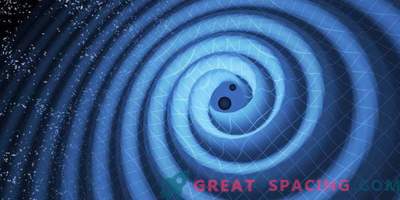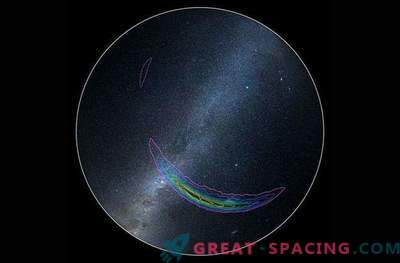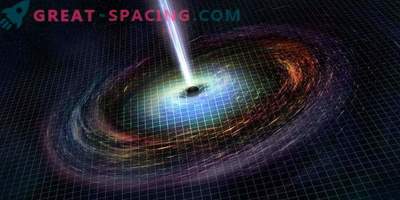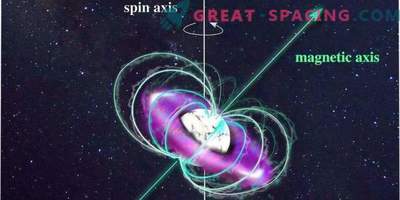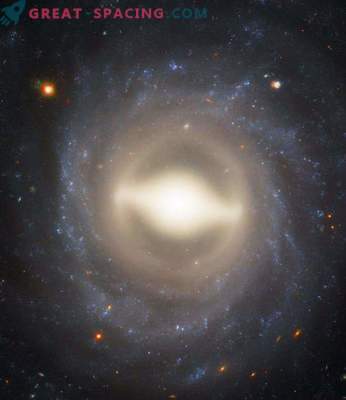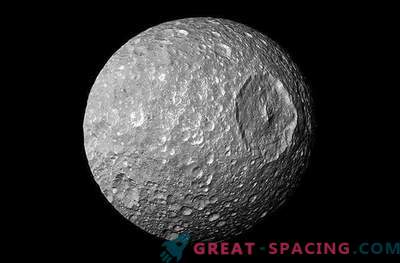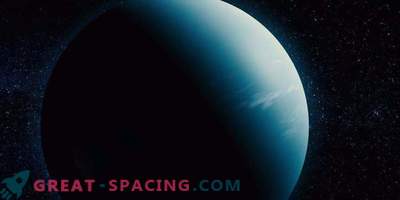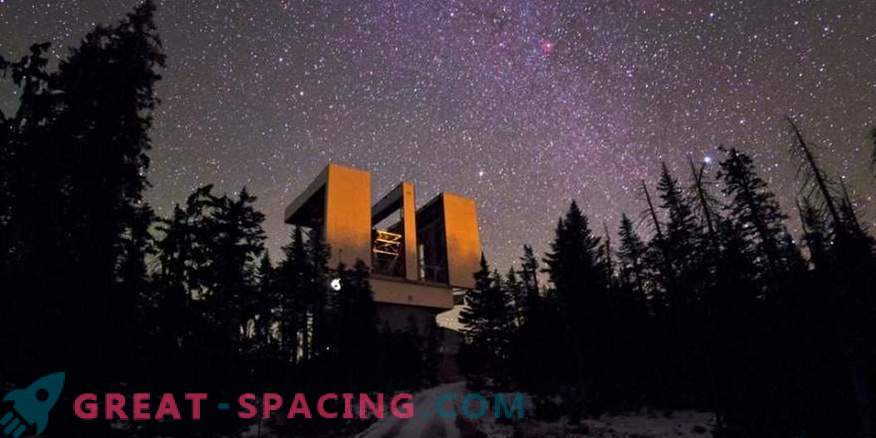
Observatory of the Large Binocular Telescope (LBTO)
The new study found the first known stable immigrant of our system. This asteroid is now in Jupiter’s orbit and is the first known asteroid captured from another star system.
In 2017, earthlings shook object 1I / Oumuamua, becoming an interstellar intruder. However, this was only a temporary guest, while the 2015 BZ509 acts as a permanent resident. All the planets in our system, like most objects, revolve around the sun in one direction. But 2015 BZ509 is different, as it moves in the opposite direction (retrograde orbit).
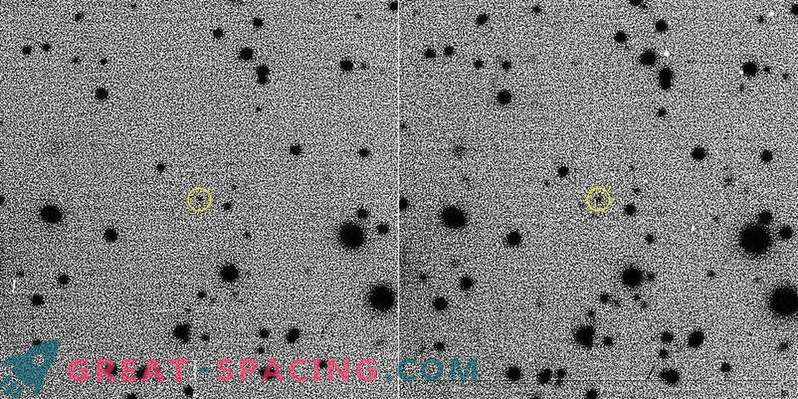
A 2015 BZ509 snapshot taken by the Observatory of a large binocular telescope (LBTO), which established its retrograde orbital nature. Bright stars and an asteroid (highlighted in yellow) appear black, and the sky - white, since it is negative
If 2015 BZ509 was a local resident, then it should obey the original direction. Scientists decided to conduct simulations in order to trace the location of 2015 BZ509 to the birth of the Solar System 4.5 billion years ago. It turned out that the object always moved in this way and therefore had to come from another system.
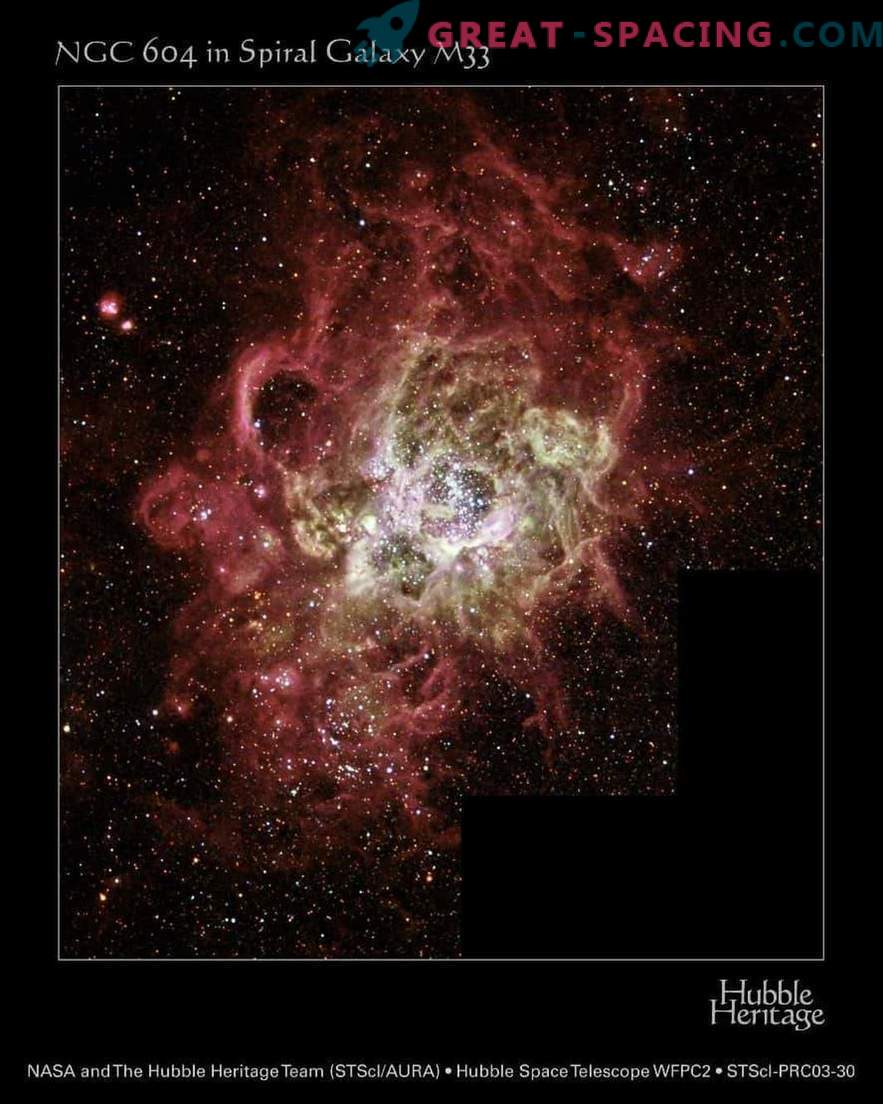
Star nursery NGC 604, where star systems are tightly packed and it is believed that asteroids can be exchanged. Asteroid 2015 BZ509 departed from the parent star and arrived to the Sun
Asteroid immigration from other star systems occurs because the Sun was originally formed from a tightly packed cluster, where each star had its own system of planets and asteroids. The proximity of the stars and the gravitational force of the planets could help capture the "captives".
The discovery of the first permanent asteroid immigrant in our system has important implications for understanding the formation of planets, the evolution of the solar system, and perhaps the origin of life itself.
